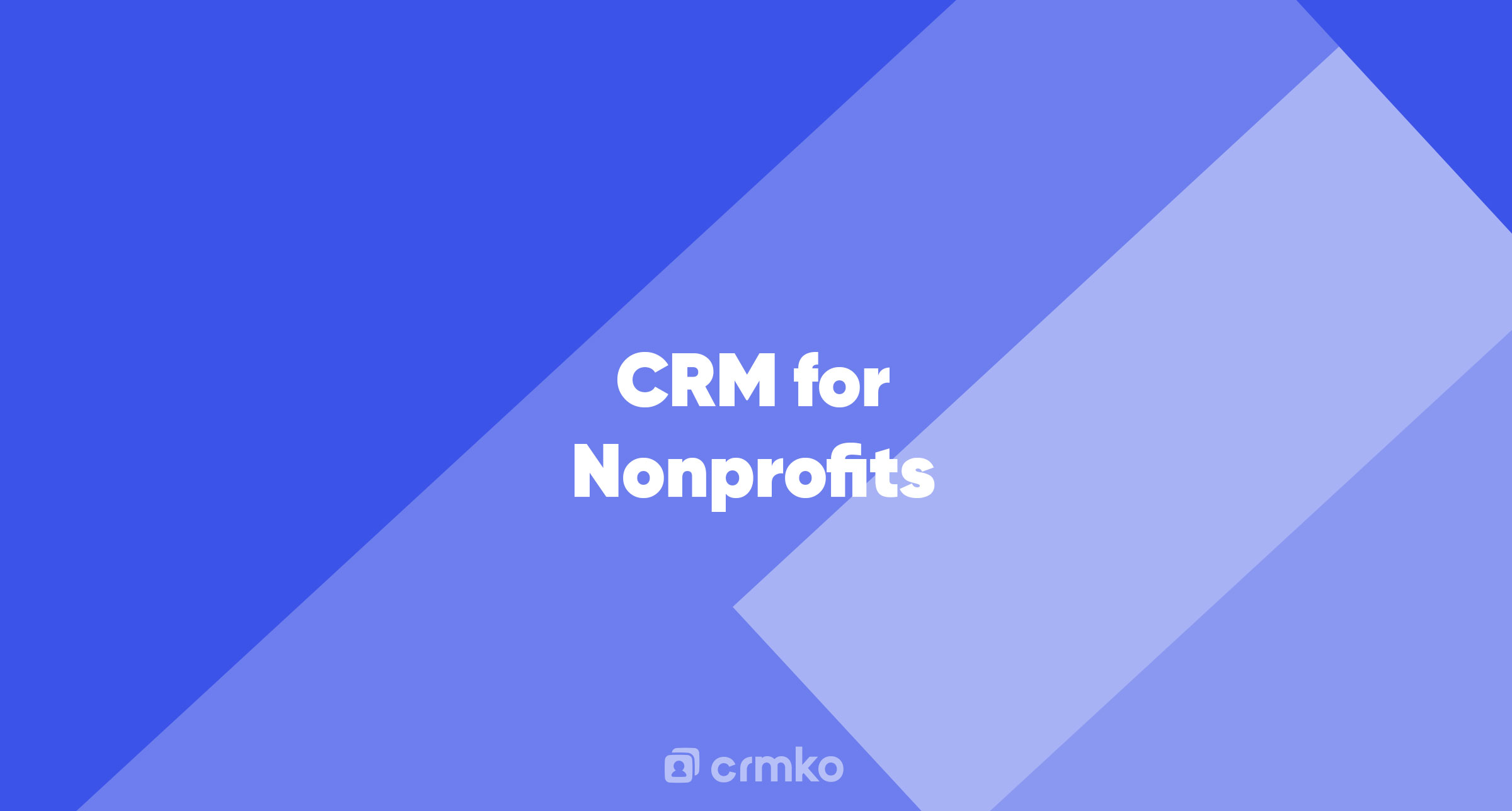Nonprofit organizations play a crucial role in addressing social and environmental challenges. To be successful in their missions, nonprofits need to engage effectively with donors, volunteers, and beneficiaries. Customer Relationship Management (CRM) systems are increasingly becoming indispensable tools for nonprofits, helping them manage relationships, track contributions, and optimize their operations. In this article, we'll explore the significance of CRM for nonprofits and how these systems can transform outreach efforts.
1. Donor Management and Retention
One of the primary functions of CRM for nonprofits is donor management. These systems enable nonprofits to track donor information, history, and interactions. They also provide insights into donor preferences, which can be used to create personalized engagement strategies. CRM helps nonprofits nurture donor relationships, which is key to donor retention and ongoing support.
2. Fundraising and Campaign Management
CRM systems streamline fundraising efforts by tracking contributions, managing campaigns, and analyzing donor behavior. These systems can segment donors based on their giving history and preferences, allowing nonprofits to create targeted fundraising campaigns. This targeted approach improves fundraising efficiency and results.
3. Volunteer Engagement
Volunteers are the lifeblood of many nonprofits. CRM systems help nonprofits manage and engage volunteers effectively. They can track volunteer hours, assign tasks, and communicate with volunteers. This ensures that volunteers have a positive experience and stay engaged with the organization.
4. Program and Impact Measurement
Nonprofits use CRM to monitor and measure program outcomes and impact. The systems can track beneficiaries' progress, collect feedback, and generate reports for stakeholders. This data-driven approach helps nonprofits assess the effectiveness of their programs and make data-backed decisions.
5. Collaboration and Communication
CRM systems facilitate internal collaboration and communication within nonprofits. Team members can access and share information about donors, volunteers, and programs. This improves transparency, enhances teamwork, and ensures that everyone is on the same page.
6. Grant and Donor Compliance
Many nonprofits rely on grants and donations. CRM systems help nonprofits maintain donor and grant compliance by tracking how funds are used and ensuring that they are allocated as intended. This is essential for maintaining trust with donors and grantors.
7. Data Security and Privacy Compliance
Nonprofits often handle sensitive information, such as donor details and beneficiary data. CRM systems can enhance data security by ensuring that this information is stored securely and accessed only by authorized personnel. CRM also helps nonprofits comply with data privacy regulations, such as GDPR and HIPAA.
Conclusion
CRM for nonprofits is a transformational tool that goes beyond simple contact management. It empowers nonprofits to build and maintain strong donor relationships, streamline fundraising efforts, engage volunteers effectively, measure program impact, enhance collaboration, and ensure compliance with donor and grant requirements. In an era where transparency, accountability, and data-driven decision-making are paramount, CRM for nonprofits has become an essential asset for nonprofits looking to make a meaningful impact in their communities and the world. By leveraging CRM, nonprofits can focus on their core missions and drive positive change more effectively.
